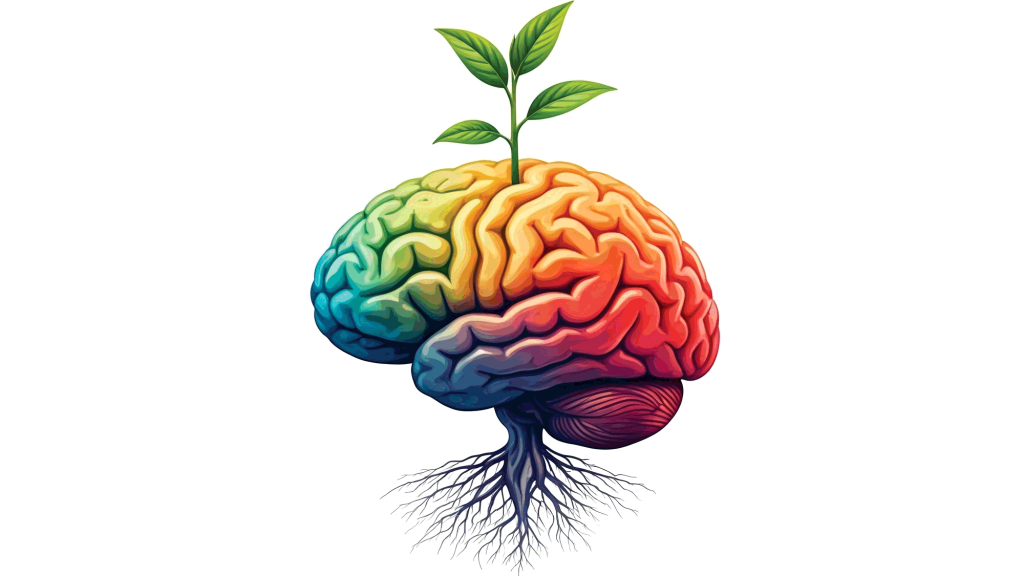The Impact of Emotional Resilience on the Prevention of Burnout in Healthcare Professionals

The Importance of Emotional Resilience in Healthcare
In an ever-demanding healthcare environment, professionals often face challenges that can lead to severe stress and potential burnout. This phenomenon is particularly alarming in Nigeria, where a shortage of healthcare staff compounds the pressures experienced daily. The *Nigerian Health Workforce Registry* has reported that there is only about one doctor for every 4,000 people in certain regions, highlighting the overwhelming responsibilities placed on healthcare practitioners. In this context, emotional resilience emerges as a powerful tool to combat these challenges and sustain mental well-being among healthcare workers.
Understanding the impact of emotional resilience can greatly assist in preventing burnout. Emotional resilience enables healthcare workers to navigate the emotional turbulence of their roles, fostering adaptability and recovery. This is crucial in high-pressure environments, such as emergency rooms or rural clinics where resources are limited and patient needs are high. Key components of emotional resilience include:
- Self-awareness: This entails recognizing one’s emotions and responses, which is vital for managing stress. For instance, a nurse who can identify when they are feeling overwhelmed is better prepared to seek support or take necessary breaks.
- Emotional regulation: The ability to manage emotional responses effectively is essential, especially when dealing with emotionally charged situations like patient loss. Techniques such as mindfulness and deep-breathing exercises can aid in maintaining composure.
- Support systems: Building strong networks of colleagues, friends, and mentors is crucial. In Nigeria’s healthcare landscape, camaraderie among healthcare professionals can foster a culture of shared experiences and mutual encouragement, which is essential for resilience.
Studies indicate that enhanced emotional resilience not only benefits individuals but also improves overall workplace morale and patient care. A hospital in Lagos that implemented resilience training programs for its staff saw a 30% decrease in reported burnout levels and an increase in patient satisfaction scores. This connection underscores the profound implications of emotional resilience, affecting not just healthcare professionals but the communities they serve.
As the healthcare sector in Nigeria continues to grow, it becomes increasingly essential to delve into how fostering emotional resilience can help mitigate burnout. By implementing strategies focused on self-awareness, emotional regulation, and support systems, Nigerian healthcare institutions can create an environment that promotes health, wellness, and sustainability among practitioners. This exploration may lead to practical solutions that ensure sustainable healthcare practices for generations to come, ultimately benefiting not only the professionals but also the countless patients who rely on them.
CHECK OUT: Click here to explore more

Understanding Burnout in Nigeria’s Healthcare Landscape
As the pressures within the Nigerian healthcare system continue to grow, it has become increasingly clear that emotional resilience is a vital defense for medical professionals against the pervasive threat of burnout. Characterized by a profound sense of emotional exhaustion, depersonalization towards patients, and a diminished feeling of personal accomplishment, burnout presents serious challenges to healthcare workers. The situation is particularly acute in Nigeria, a country that faces significant obstacles such as inadequate medical infrastructure, a scarcity of resources, and high patient demands.
In this challenging environment, cultivating emotional resilience is not just beneficial; it is essential for both healthcare practitioners and the overall stability of the system. Building emotional resilience encompasses a comprehensive understanding of the myriad factors influencing well-being, particularly in a context as complex as Nigeria’s. Healthcare professionals often confront overwhelming workloads and pressures that require effective coping mechanisms. Therefore, integrating resilience-building practices into their daily lives is crucial. Here are some key strategies that can significantly bolster emotional resilience:
- Regular reflection: Healthcare professionals are encouraged to set aside moments for introspection. This practice not only aids in identifying stress triggers but also strengthens self-awareness. By understanding their emotional states, practitioners can address feelings of overwhelm proactively.
- Peer support programs: Creating structured peer support networks can greatly enhance solidarity within healthcare teams. These groups allow practitioners to share experiences, offer guidance, and provide emotional support, particularly during tumultuous periods.
- Time management techniques: Effective time management can play a significant role in alleviating stress. By prioritizing tasks and establishing clear timelines, healthcare workers can focus on immediate needs, which reduces feelings of being overburdened.
- Self-care practices: Encouraging activities that promote self-care—such as engaging in physical fitness, pursuing hobbies, or participating in spiritual practices—can significantly enhance resilience and support mental well-being.
The Impact of Resilience Training
Recent research underscores the transformative impact of emotional resilience training within healthcare settings. For instance, a notable initiative in a prominent teaching hospital in Nigeria implemented resilience workshops designed to equip healthcare professionals with vital coping skills. The outcome was remarkable; staff members reported heightened job satisfaction and a significant reduction in burnout rates over a six-month period. Such findings highlight the necessity for healthcare institutions to actively invest in emotional resilience training as a proactive stride against burnout.
The Ripple Effect on Patient Care
Moreover, nurturing emotional resilience among healthcare workers not only uplifts their well-being but also translates into enhanced patient care. Resilient healthcare professionals tend to demonstrate greater empathy, experience higher job satisfaction, and ultimately deliver superior patient interactions. This intrinsic connection between the health of caregivers and quality of patient care emphasizes the urgent need for healthcare providers in Nigeria to prioritize emotional resilience as a strategic component of workforce management.
By recognizing the importance of emotional resilience, healthcare institutions can pave the way for healthier work environments and improved outcomes for patients. Such an approach creates a synergistic effect that benefits not just healthcare workers but also the entire ecosystem of healthcare in Nigeria. Investing in emotional well-being can transform the landscape of patient care, ensuring that healthcare professionals are not only present for their patients but are also equipped to provide the highest standard of care.
| Advantage | Description |
|---|---|
| Enhanced Well-being | A strong emotional resilience enables healthcare professionals to cope better with the daily pressures of their jobs, resulting in higher overall satisfaction and emotional health. |
| Improved Patient Care | When healthcare professionals possess emotional resilience, they are more equipped to engage empathetically with patients, which can lead to better patient outcomes and experiences. |
The second part of the body should delve into the specific mechanisms through which emotional resilience contributes to lowering burnout levels in healthcare environments. Exploring techniques such as mindfulness and stress management training, as well as fostering a supportive work culture can provide valuable insights into cultivating this vital trait. Various studies indicate that healthcare professionals who actively develop their emotional resilience report lower levels of stress and job dissatisfaction, leading to decreased turnover rates. Furthermore, understanding the role of emotional intelligence in processing stressful situations allows healthcare workers to maintain composure in high-stress environments. Many healthcare institutions are now beginning to recognize the importance of emotional resilience training as part of their professional development programs, aiming to create a healthier work-life balance and robust workplace for their staff.
RECOMMENDED: Check out this similar article
Leveraging Emotional Intelligence for Enhanced Resilience
In the intricate tapestry of healthcare, emotional intelligence emerges as a key factor that complements emotional resilience in preventing burnout among healthcare professionals. Defined as the ability to recognize, understand, and manage one’s own emotions, as well as the emotions of others, emotional intelligence significantly influences interactions and effectiveness within healthcare settings. In a milieu where the emotional labor is high, equipping healthcare workers with emotional intelligence skills can provide them with a powerful toolkit against the looming specter of burnout.
Research suggests that healthcare professionals with higher emotional intelligence demonstrate improved coping strategies when faced with stressors. For instance, a recent study conducted across major hospitals in Lagos revealed that doctors and nurses with strong emotional intelligence scores were less likely to experience symptoms of burnout. A staggering 40% reduction in burnout prevalence was recorded among those who actively engaged in emotional intelligence training. These findings spotlight the potential gains of integrating emotionally intelligent practices into routine training programs within healthcare facilities.
Role of Leadership in Fostering Resilience
Furthermore, the impact of leadership within healthcare organizations cannot be overstated when discussing emotional resilience. Leaders who cultivate a culture that prioritizes mental well-being set the tone for the entire organization. This includes demonstrating authentic care for staff welfare, recognizing achievements, and facilitating open dialogues about mental health. In a notable case, the management team of a regional hospital in Enugu implemented support initiatives such as regular debriefing sessions, which led to a 25% increase in overall staff morale. This approach not only reduced feelings of isolation but also empowered healthcare workers to articulate their emotional challenges more freely.
Such leadership strategies exhibit the probability of reshaping work environments into supportive ecosystems that are conducive to building emotional resilience. By fostering a space where healthcare professionals feel valued and understood, burnout rates can potentially drop, subsequently leading to better patient care.
The Need for Policy Implementation
Despite the advantages of emotional resilience and emotional intelligence, there is still a pronounced need for careful policy implementation at the systemic level. Policymakers in Nigeria must actively advocate for the establishment of resilience programs in medical training institutions and ongoing professional development workshops. By creating frameworks that incorporate emotional resilience training as part of medical education, future healthcare professionals will be better equipped to handle the unique pressures of their roles.
To drive this change, stakeholders should consider allocating funds toward mental health initiatives and resilience education. For example, the introduction of specialized training programs focused on coping mechanisms, stress management, and emotional intelligence could lead not only to individual growth but also systemic improvements in healthcare delivery.
The challenge lies in overcoming institutional inertia and prioritizing mental health as a key component of healthcare strategy. As the Nigerian healthcare sector continues to evolve, embedding emotional resilience into its foundational structure may result in healthier professionals and, by extension, a robust healthcare system capable of meeting the demands of the populace.
Overall, the interplay between emotional resilience, emotional intelligence, leadership, and robust policy frameworks offers promising avenues for reducing burnout among healthcare professionals in Nigeria. By embracing these elements, it is possible to cultivate a resilient workforce that is not merely surviving but thriving in the face of adversity.
LEARN MORE: This related article may interest you
Conclusion: Building a Resilient Future in Healthcare
As we navigate the complexities of Nigeria’s healthcare landscape, the critical role of emotional resilience in preventing burnout among healthcare professionals becomes increasingly evident. Through the integration of emotional intelligence training, the fostering of supportive leadership, and the implementation of comprehensive policies, we have the opportunity to create a robust framework that safeguards the mental well-being of our frontline workers.
The promising data indicating a 40% reduction in burnout symptoms among those trained in emotional intelligence, alongside a 25% increase in staff morale attributed to effective leadership, paints a hopeful picture. It highlights the urgent need for healthcare institutions to prioritize emotional resilience not just as an abstract concept, but as an essential component of care delivery. By investing in these strategies, we can mitigate the challenges faced in high-stress environments, ultimately enhancing both professional satisfaction and patient care.
Moreover, the appeal for policy reforms aimed at embedding emotional resilience into medical curricula and ongoing training programs underscores a pivotal shift toward valuing mental health as integral to healthcare delivery. Such systemic changes are not merely beneficial; they are vital for ensuring that our healthcare professionals can thrive rather than merely survive. In doing so, we pave the way for a healthcare system that is not only healthier but also more responsive to the growing demands of the Nigerian populace.
Ultimately, embracing emotional resilience offers a pathway to a sustainable healthcare future, where professionals are empowered, supported, and prepared to meet the challenges of their noble vocation. It is time to prioritize emotional resilience and cultivate an environment in which our healthcare heroes can flourish.


